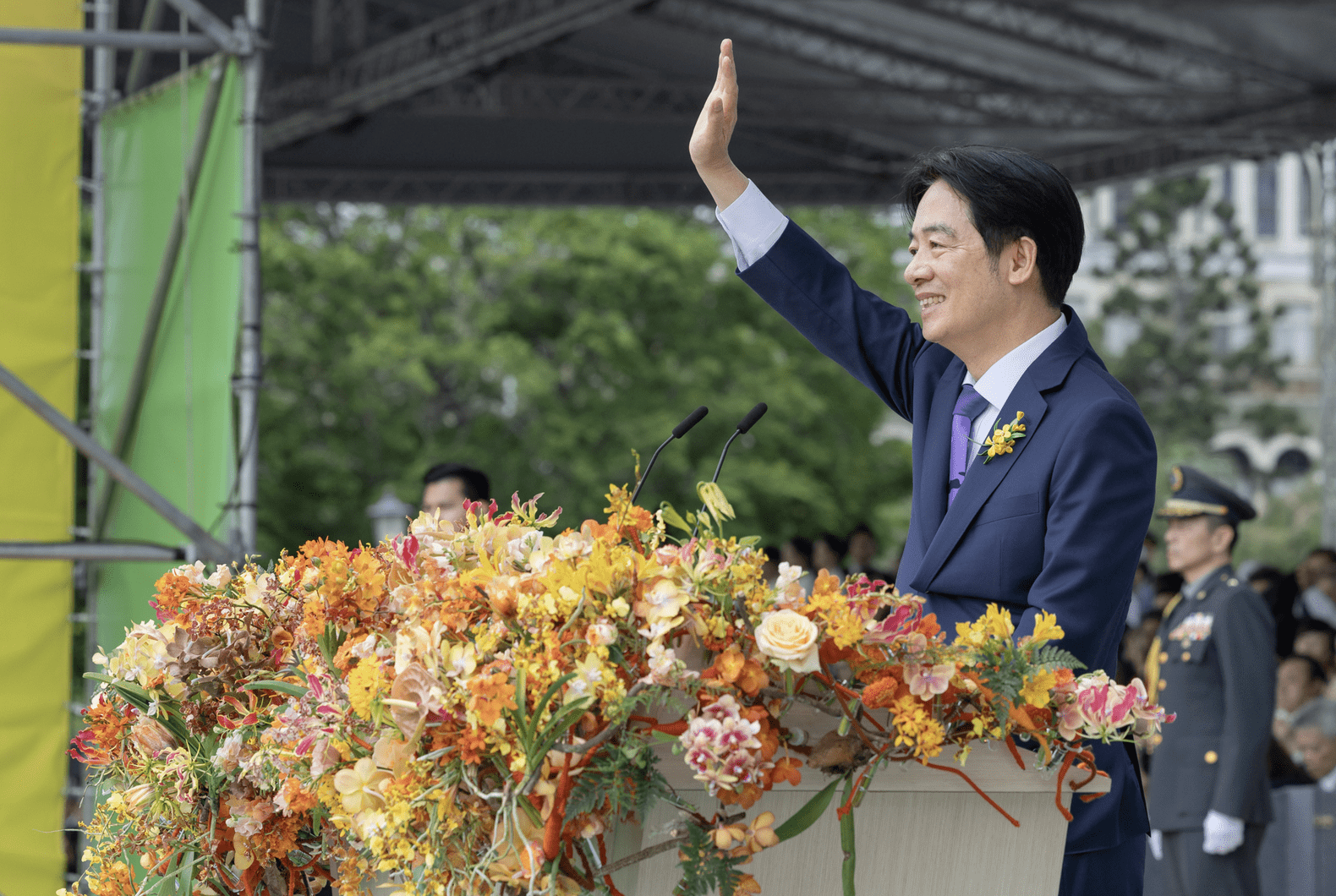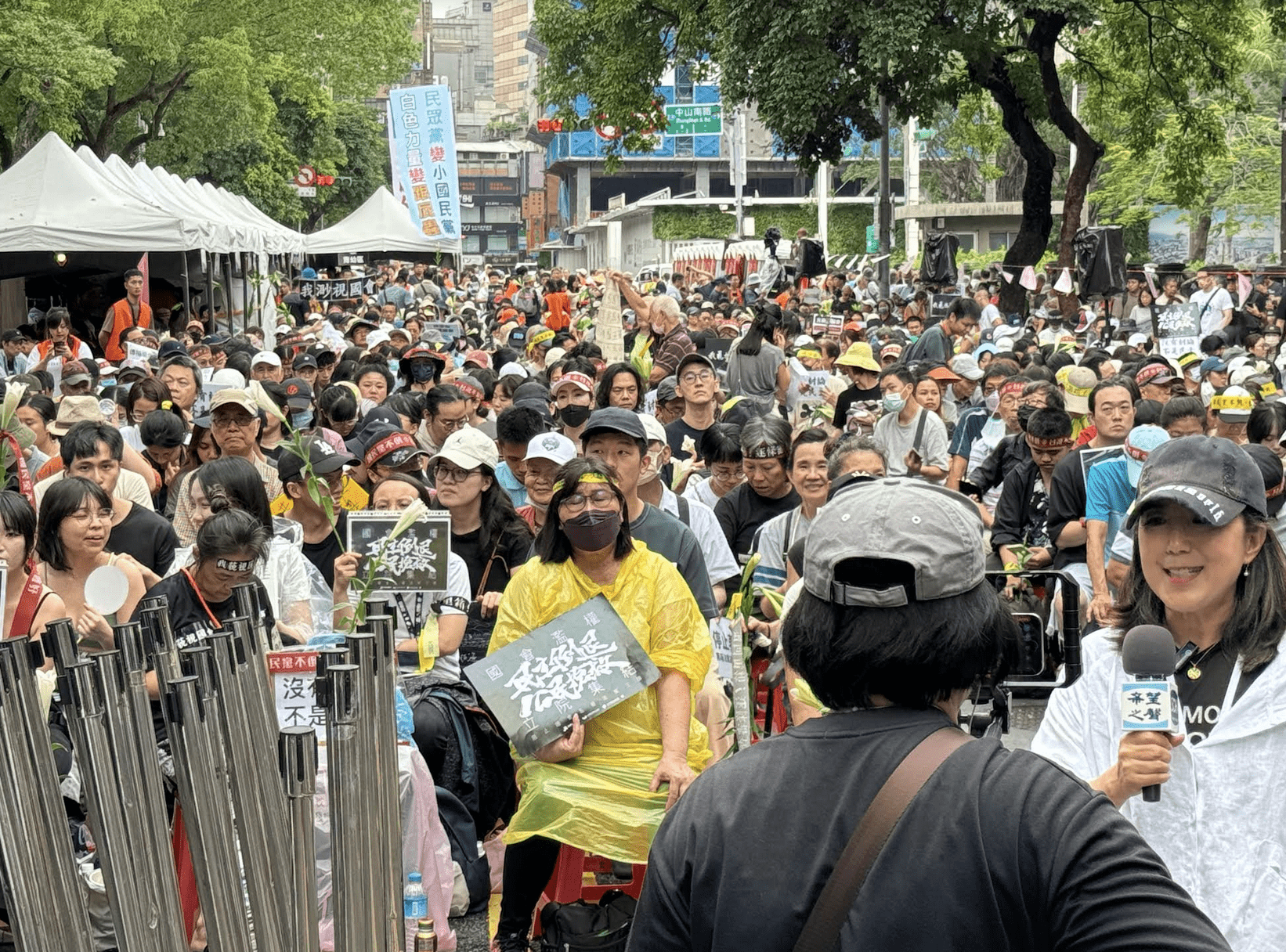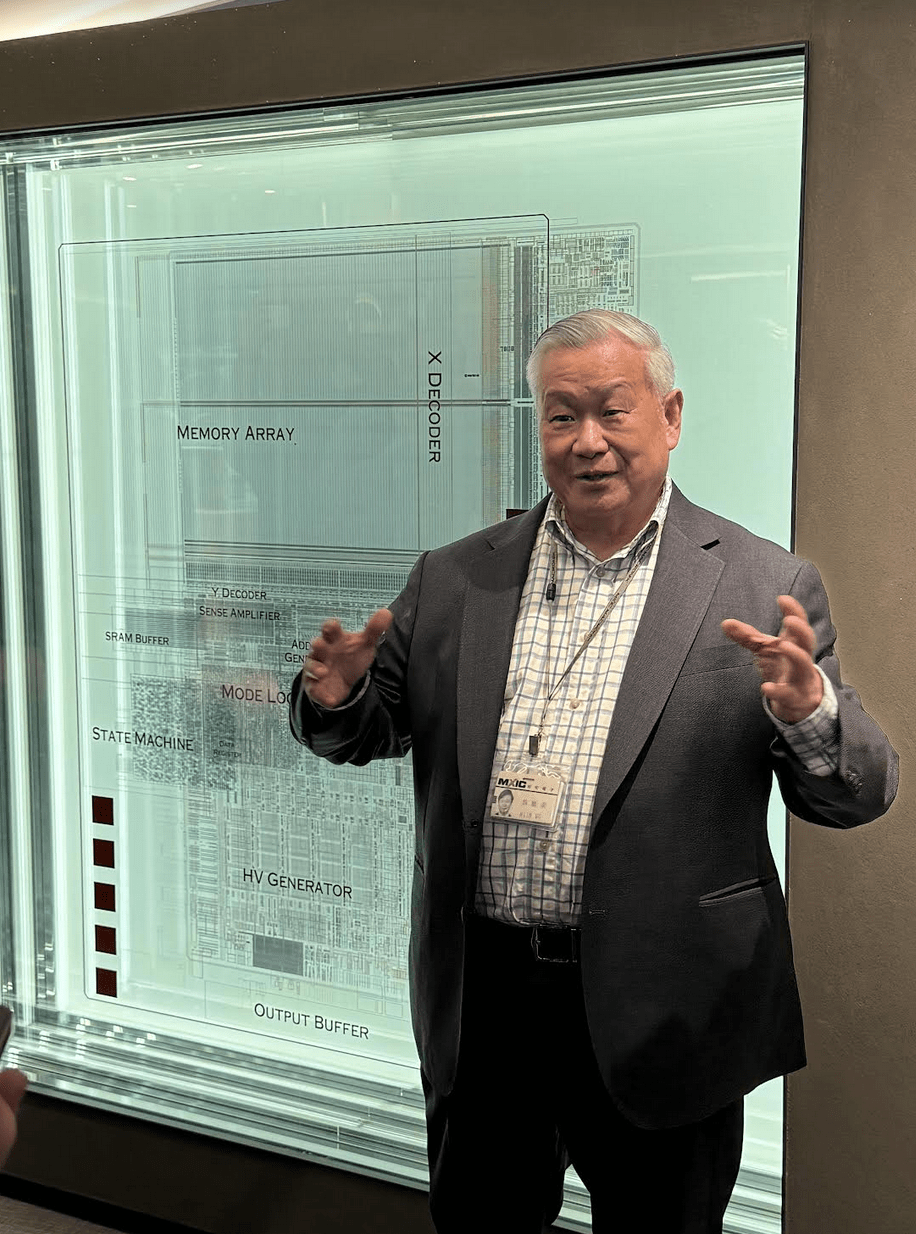As Taiwan’s William Lai Takes Power, a Test for Canada and Democracy
 President William Lai on Inauguration Day, May 20/William Lai X
President William Lai on Inauguration Day, May 20/William Lai X
Heather Bakken
June 3, 2024
Taiwan’s post-election transition period presents a series of contrasts and contradictions that will test its resiliency as a democracy. It is in Canada’s interest – and in the interest of both our Euro-Atlantic and Five Eyes alliances – that democratic Taiwan pass this test.
On May 20, Taiwan’s outgoing president, Tsai Ing-wen, handed the reigns to her vice-president, William Lai, or Lai Ching-te, having reached her two-term limit. Lai’s succession represents a stark contrast with the political power consolidations of President Xi Jinping, the authoritarian dictator across the Strait, who still has his sights set on Taiwan.
Lai’s pro-sovereignty inauguration speech included an explicit message to Beijing to “stop threatening Taiwan”. Beijing responded with a statement warning, “We will never tolerate or condone any form of secessionist acts of ‘Taiwan independence'” and a military blockade that had the ominous code name 2024A, suggesting there are more to come this year. Taiwanese military analysts worry a blockade could turn into an invasion without warning. Moreover, China has the manufacturing capacity to outnumber any navy on the South China Sea. Its ability to produce naval ships outstrips that of the U.S. and its allies, although the quality of those vessels is inferior and they require more maintenance, for now.
Beijing’s political agenda with Taiwan is now evident in the tension between the country’s Executive Yuan, the branch headed by its new president, and its Legislative Yuan, now controlled by a pro-Beijing opposition. Leading up to the presidential and legislative elections in January, Beijing unleashed a disinformation campaign framing the vote as a choice between war and peace. For his part, Mr. Lai ran on a platform of unity, offering a ballot-box-question choice between authoritarianism and democracy. Both sides won – and lost.
President Lai, a doctor-turned politician, won the popular vote, but his Democratic Progressive Party (DPP) lost its parliamentary majority. Voters said no to Beijing’s preferred candidate, but they gave the Beijing-friendly Kuomintang party (KMT) the most seats in the legislature. And a Beijing-friendly upstart, the Taiwan People’s Party (TPP), won enough seats to create a pro-Beijing majority.
It is easy to forget that this vibrant democracy has evolved from a dictatorship in a mere four decades. The country’s first full parliamentary election was held in 1992. The same year, the Communist Party of China sought consensus on a “One China” principle that would see Taiwan as an inalienable part of mainland China. Taiwan respectfully declined, preserving the independence it has defended since Mao Zedong’s revolution in 1949.
While Ottawa officially has a “One China” policy that does not recognize Taiwan as a sovereign political entity, we have a cultural and trading relationship with the country. Our de facto policy is to recognize Taiwan as independent – if not sovereign. It is a diplomatic balancing act replicated in other major Western capitals, including Washington.
I was in Taiwan during the week of Lai’s inauguration in my role as president of World Press Freedom Canada. Canadian MPs were also in Taipei, as members of the Canada-Taiwan Friendship Group. One MP noted that Taiwanese are more concerned about the looming threat of China since her last visit two years ago. Xi has openly stated he wants his People’s Liberation Army (PLA) to be ready to invade Taiwan by 2027, which has Taiwan beefing up its military capability. But as one MP remarked, the Taiwanese are “…very confident in who they are, and I think they’re enjoying the fact that they’re a democracy next to a great big bully that isn’t.”
Beijing has supported a relentless campaign of coercion and intimidation towards Taiwan. Most recently, post-pandemic, it has imposed tariffs, unilaterally changed commercial flight paths without notification and conducted military exercises within territorial waters. It spreads disinformation to foster chaos and disruption. It prevents Taiwanese journalists from attending the World Health Assembly through its clout at the UN.
In addition to its proxy political influence, Beijing buttresses military intimidation with gray-zone tactics such as cognitive warfare, cyber-attacks and disinformation campaigns. It uses Artificial Intelligence to pollute Taiwan’s information ecosystem at an overwhelming rate. Still, the people who have been living under the threat of the bully next door have shown their resiliency through digital literacy and a strong dose of skepticism.
 Pro-Democracy demonstrators at the Yuan (parliament) in Taipei protesting a new law aimed at restricting the new president’s powers/Heather Bakken
Pro-Democracy demonstrators at the Yuan (parliament) in Taipei protesting a new law aimed at restricting the new president’s powers/Heather Bakken
During the interregnum between January’s election and the inauguration, Taiwan’s opposition parties used their majority to put forward controversial reforms in the unicameral legislature under the auspices of greater transparency and accountability. The legislation, which was passed by the opposition-led majority in the Legislative Yuan on May 28 and is seen as favourable to China’s anti-democracy agenda, will limit executive power and expand lawmakers’ investigative powers to summon people – including the president. It could impose jail time for officials who are found in contempt. It could be used to hog-tie the government, stymie new policy initiatives, and prevent a military upgrade to fend off the PLA.
Former Director of the American Institute in Taiwan, William Stanton, issued a joint statement with academics warning the parliamentary reforms, “exceed the bounds of those found in constitutional democracies around the world, subvert the rule of law and parliamentary procedures.”
Second reading triggered a physical brawl in the legislature. Consenting lawmakers have been accused of pushing it through without due process, of which the Beijing-sponsored KMT was also accused when it was the ruling party and in 2014 tried to push through passage of its Cross-Strait Service Trade Agreement with China without a clause-by-clause review. That provoked a series of student-led protests dubbed the Sunflower Movement. That law didn’t pass and today Taiwan is the 20th largest economy in the world thanks to what has been dubbed the ‘Taiwan Miracle’, based on rapid open-market development that made Taipei an economic powerhouse. This time around, the opposition majority ignored the protesters demands and succeeded in making it past third reading. At this writing, the 10-day deadline within which Lai and the Executive Yuan must proclaim or veto laws still looms.
The Taiwanese have learned from Hong Kong, which just convicted 14 pro-democracy protesters for subversion under its China-imposed national security law. China’s commitment to a one-country, two-system model for Hong Kong was a false promise.

Miin Wu, CEO of semiconductor company Macronix/Heather Bakken
Taiwan has thrived under its sovereignty and democracy. Today, it dominates the semi-conductor industry, manufacturing more than 90 percent of the world’s most advanced microchips that are used in everything from our smart phones to satellite communications and network infrastructure. It is a sentinel for the Taiwan Strait, a key shipping route that sees nearly half of the global container fleet and 88 percent of the world’s largest ships. A sovereign Taiwan protects our interests and shares our values.
Canada’s support for Taipei on the international stage could benefit the broader global community. Numerous Canadian parliamentarians have been making the case for granting Taiwan membership to international organizations such as the World Health Organization (WHO) and the International Civil Aviation Organization (ICAO).
The WHO Council on the Economics of Health for All has found that at least 140 countries recognize health as a fundamental human right, but most haven’t found a way to finance it.
Taiwan has consistently improved the quality of health care over the past few decades, in line with WHO recommendations, and has achieved universal health coverage. Taipei’s COVID protocols were among the most effective on the planet. The country has put in place an agile and resilient health care system to combat both communicable and noncommunicable diseases and it is willing to share its experience and expertise with the international community. Excluding Taiwan from a seat at the table prevents that exchange of valuable economic intelligence and innovation. Acquiescing to China costs everyone.
We should go further than just facilitate admission to international bodies. We have a moral imperative to recognize Taiwan’s full sovereignty.
This year, Canada is the chair of the Comprehensive and Progressive Agreement for Trans-Pacific Partnership (CPTPP) Commission. Ottawa has a unique opportunity to help repair the fragmentation of today’s global trading system by promoting global institution building, including the promotion of Taiwan as a partner in that system and in those institutions.
The English poet John Donne once wrote, “No man is an island, entire of itself; every man is a piece of the continent, a part of the main.” While China interprets this literally and geographically, Canada and Taiwan are united in reading this metaphor through the prism of our shared values and economic wellbeing. ‘Silicon Island’ is indispensable for our shared way of life. As a friend – a sibling – to Taiwan among the family of democratic nations, Canada should show its support by officially recognizing Taiwan as “a part of the main”; of our, democratic, main.
Heather Bakken is a founding partner at Pendulum Group and president of World Press Freedom Canada.
